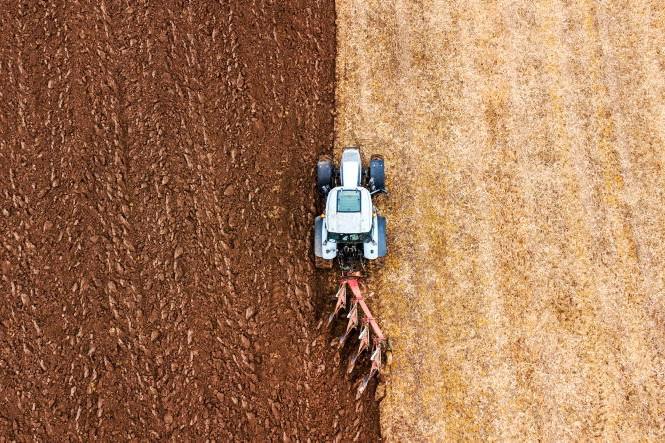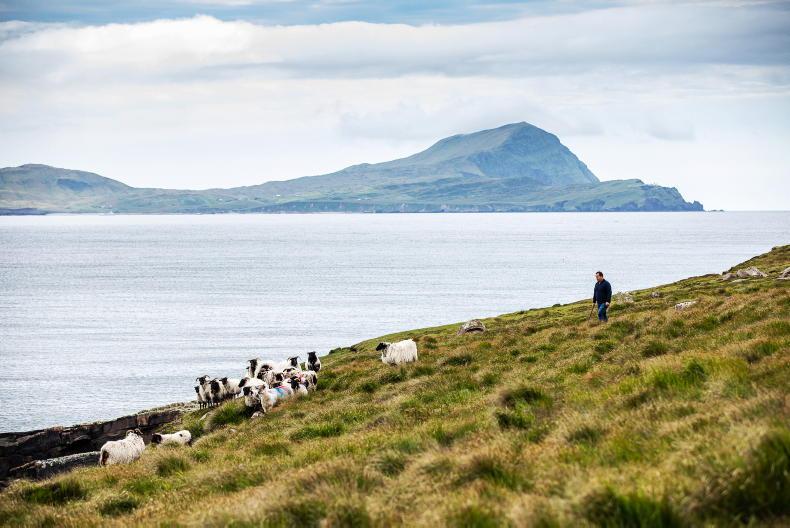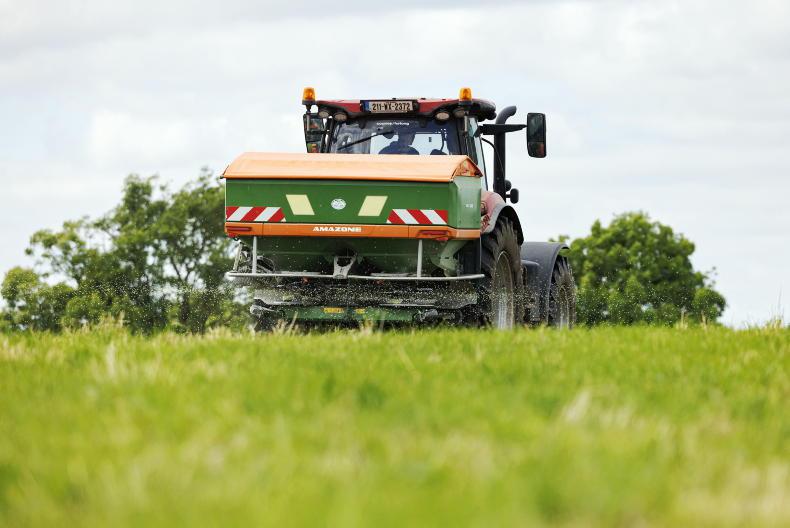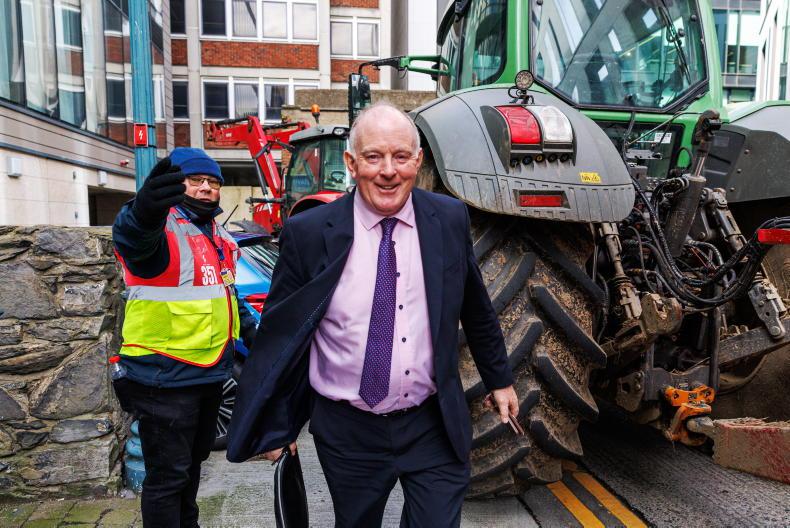The new Suckler Carbon Efficiency Programme must give farmers at least €300/cow, while the Sheep Improvement Scheme should be funded to deliver €30/ewe.
These are among a range of proposals included in the IFA’s submission on Budget 2023.
The IFA submission pointed out that farm incomes had been seriously impacted by the spiralling cost of inputs. This had been reflected in the agricultural input price index hitting almost 42% this year.
It argued that the threat posed by the sharp hike in input costs, as well as the continuing uncertainty around Brexit, had to inform the Government’s budgetary approach.
In relation to the beef sector, the IFA submission pointed out that Government support committed to suckler farmers in 2023 is €28m less than current levels.
The IFA called for the retention of a scheme similar to the BEEP-S programme. In addition, it sought a €20/head increase in the Dairy Beef Welfare Scheme, and the introduction of a similar programme for farmers who rear beef animals from the suckler herd.
The IFA submission welcomed the introduction of the fodder scheme but called for the €1,000 payment ceiling to be revisited.
In addition, it proposed that financial support for the purchase of feed be made available for farmers who carry livestock over the winter but do not have land suitable to grow and save fodder.
The submission also called for dairy farmers to be eligible for the fodder scheme supports.
The IFA called for the Tillage Incentive Scheme to be rolled over for 2023, with a discounted rate of €200/ha being paid on land that remained in tillage production for 2023, and €400/ha again being paid on any land converted to tillage crops.
Pig fund
In order to tackle the ongoing difficulties in the pig industry, the IFA proposed the establishment of a €100m Pig Stability Fund. This initiative is also supported by Meat Industry Ireland (MII), and the Irish Grain and Feed Association (IGFA).
€460m sought for funding of agri-environment programmes
An annual funding allocation of €460m is required for environmental and locally led schemes, the IFA pre-budget submission has insisted.
While welcoming the establishment of the Agri-Climate Rural Environment Scheme (ACRES), the IFA said it was vital that all farmers who complete their environment scheme contracts this year are granted access to the new programme.
The IFA also maintained that limiting membership of ACRES to 50,000 was not justified given that over 52,000 farmers are due to exit existing agri-environment programmes this year.
Staying with agri-environment issues, the IFA submission called for ANC funding to be increased by €50m to bring its total budget to €300m.
In addition, it proposed that funding for the National Parks and Wildlife Service (NPWS) should be increased by €15m to pay farmers where, due to the designation of lands, restrictions are imposed on farming.
With regard to the organics sector, the IFA submission stated that funding for the Organic Farming Scheme should be increased to €30m to incentivise and develop production.
IFA seeks extension of
relief on agri-diesel
The IFA has called for an extension of existing excise duty relief on agri-diesel and liquid petroleum gas (LPG) for farm use.
The farm body argued that the move is required to reduce production costs at farm level.
The IFA has also proposed the suspension of the carbon tax on agri-diesel and LPG for 2022 and 2023 for farmers and agri-contractors. Alternatively, it suggested that any forecast increases in the carbon tax should be deferred to periods outside peak agricultural activity.
The proposals were included in the IFA’s pre-budget submission.
Among the other tax-related matters included in the submission was a call for the roll-over of all income tax reliefs for the self-employed that were introduced for COVID-19.
The IFA also sought the roll-over of the various stock relief for young trained farmers.
In terms of pensions, the IFA proposed that the new Workplace Pension Scheme should be extended to include farmers and other self-employed people.
The farm body suggested that for every €3 saved by a farmer, a further €4 should be credited to their pension savings account by the Government.
The new Suckler Carbon Efficiency Programme must give farmers at least €300/cow, while the Sheep Improvement Scheme should be funded to deliver €30/ewe.
These are among a range of proposals included in the IFA’s submission on Budget 2023.
The IFA submission pointed out that farm incomes had been seriously impacted by the spiralling cost of inputs. This had been reflected in the agricultural input price index hitting almost 42% this year.
It argued that the threat posed by the sharp hike in input costs, as well as the continuing uncertainty around Brexit, had to inform the Government’s budgetary approach.
In relation to the beef sector, the IFA submission pointed out that Government support committed to suckler farmers in 2023 is €28m less than current levels.
The IFA called for the retention of a scheme similar to the BEEP-S programme. In addition, it sought a €20/head increase in the Dairy Beef Welfare Scheme, and the introduction of a similar programme for farmers who rear beef animals from the suckler herd.
The IFA submission welcomed the introduction of the fodder scheme but called for the €1,000 payment ceiling to be revisited.
In addition, it proposed that financial support for the purchase of feed be made available for farmers who carry livestock over the winter but do not have land suitable to grow and save fodder.
The submission also called for dairy farmers to be eligible for the fodder scheme supports.
The IFA called for the Tillage Incentive Scheme to be rolled over for 2023, with a discounted rate of €200/ha being paid on land that remained in tillage production for 2023, and €400/ha again being paid on any land converted to tillage crops.
Pig fund
In order to tackle the ongoing difficulties in the pig industry, the IFA proposed the establishment of a €100m Pig Stability Fund. This initiative is also supported by Meat Industry Ireland (MII), and the Irish Grain and Feed Association (IGFA).
€460m sought for funding of agri-environment programmes
An annual funding allocation of €460m is required for environmental and locally led schemes, the IFA pre-budget submission has insisted.
While welcoming the establishment of the Agri-Climate Rural Environment Scheme (ACRES), the IFA said it was vital that all farmers who complete their environment scheme contracts this year are granted access to the new programme.
The IFA also maintained that limiting membership of ACRES to 50,000 was not justified given that over 52,000 farmers are due to exit existing agri-environment programmes this year.
Staying with agri-environment issues, the IFA submission called for ANC funding to be increased by €50m to bring its total budget to €300m.
In addition, it proposed that funding for the National Parks and Wildlife Service (NPWS) should be increased by €15m to pay farmers where, due to the designation of lands, restrictions are imposed on farming.
With regard to the organics sector, the IFA submission stated that funding for the Organic Farming Scheme should be increased to €30m to incentivise and develop production.
IFA seeks extension of
relief on agri-diesel
The IFA has called for an extension of existing excise duty relief on agri-diesel and liquid petroleum gas (LPG) for farm use.
The farm body argued that the move is required to reduce production costs at farm level.
The IFA has also proposed the suspension of the carbon tax on agri-diesel and LPG for 2022 and 2023 for farmers and agri-contractors. Alternatively, it suggested that any forecast increases in the carbon tax should be deferred to periods outside peak agricultural activity.
The proposals were included in the IFA’s pre-budget submission.
Among the other tax-related matters included in the submission was a call for the roll-over of all income tax reliefs for the self-employed that were introduced for COVID-19.
The IFA also sought the roll-over of the various stock relief for young trained farmers.
In terms of pensions, the IFA proposed that the new Workplace Pension Scheme should be extended to include farmers and other self-employed people.
The farm body suggested that for every €3 saved by a farmer, a further €4 should be credited to their pension savings account by the Government.








SHARING OPTIONS